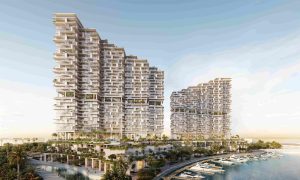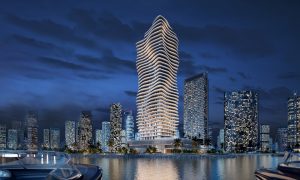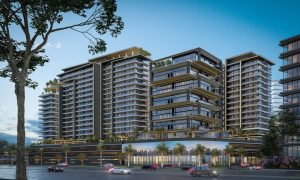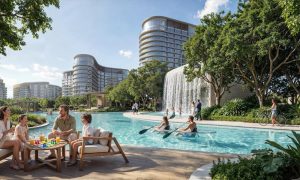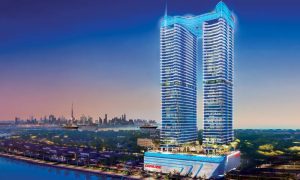Abu Dhabi Urban Planning Council approves Al Reem Island master plan
Plan will enable three big developers, including Aldar Properties, to complete their own schemes on the island

Abu Dhabi’s Urban Planning Council has approved an ‘overarching concept master plan’ for Al Reem Island, which it says will unify existing projects by three major developers.
The Integrated Concept Master Plan (ICMP) will set out the upcoming developments and community facilities on Al Reem Island, the UPC said in a statement.
The decision was made with the support and cooperation of developers Tamouh, Reem Investments and Aldar Properties.
“The integrated master plan for Al Reem Island forms an integral part of Abu Dhabi’s path towards sustainable urban growth in line with Abu Dhabi Vision 2030 and is a core component of Plan Capital 2030,” said Falah Al Ahbabi, the UPC’s Director General.
The ICMP will enable the developers to complete their own master plans, which in turn will help the UPC and other agencies to better manage existing developments on Al Reem Island, ensure quality and meet current regulations and standards, the council said.
The major facilities detailed in the ICMP include plans for 11 new private schools that will accommodate a minimum of 22,000 students, six dedicated nurseries and kindergartens, the Paris Sorbonne University, three private hospitals and a number of clinics. There are also nine mosques, Civil Defence and Police facilities, a major transit hub and 500,00sqm of parks and open spaces including pedestrian promenades.
Talal Al Dhiyebi, chief development officer of Aldar Properties, told MEConstructionNews.com that he welcomed the initiative by UPC, saying it would complement the work currently underway.
“It’s a great initiative. It brings together the three key developers – Tamouh, Reem Investments and Aldar Properties. We [at Aldar] are obviously responsible for the Shams Abu Dhabi section of Al Reem Island,” he said.
“[What] is very important is that section of the master plan integrates quite cohesively with the rest of the island – in terms of transportation, utilities and facilities. Right now, there’s going to be a lot of emphasis on open areas, public parks, schools and on healthcare,” Al Dhiyebi added.
He said Aldar Properties had already begun working on projects in those areas, highlighting the development of the Repton School as one example.
“We’ve recently signed a 100,000 sq ft daycare centre with Burjeel Hospital, which is currently under fit-out, and we’re looking right now to spend a lot more on public and open areas, pedestrian walkways, bicycle paths etcetera,” he explained.
The ICMP provides for the managed growth of housing, commercial offices and retail space, all in close proximity to the existing central business district on Al Maryah Island, the UPC said.
The plan was submitted by Bunya LLC in December 2014, after working closely with the UPC and the three key developers over the last seven years. It incorporates the objectives of the developers as well as the requirements of UPC. Final approval was granted by the UPC on April 8, 2015.
Tamouh’s developments account for approximately 57% of the Al Reem Island area, Aldar Properties 20%, and Reem Investments 20%.
Al Reem Island will eventually be home to some 210,000 residents, up from almost 20,000 now.
The ICMP covers the total Al Reem Island land area of 8.869 million sqm, with a gross floor area (GFA) of almost 20 million m². Of that, 1.442 million sqm GFA will be office space, 873,576 sqm will be allocated to retail (which includes the upcoming Reem Mall), and up to 10,000 hotel and serviced apartment rooms will be available, along with schools, hospitals and other community facilities.
The ICMP also provides for the protection and enhancement of the North Bay mangroves; it facilitates a number of new transport links connecting Abu Dhabi island to other areas; and it ensures middle-income – or ‘affordable’ – rental-housing obligations will be secured in all new areas.
